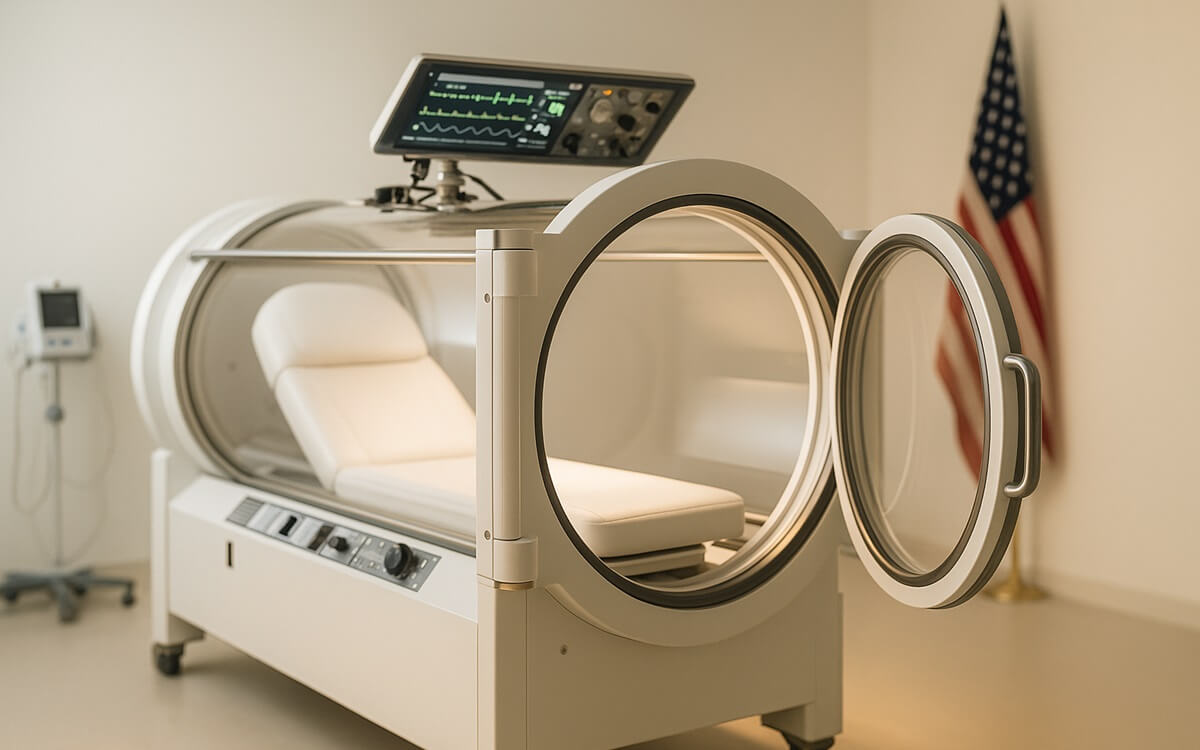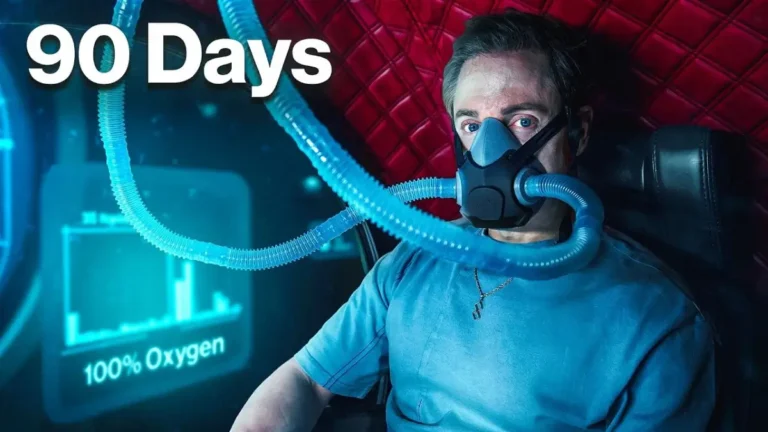Congressional lawmakers are pushing to make hyperbaric oxygen therapy available to veterans suffering from traumatic brain injuries and post-traumatic stress disorder, introducing bipartisan legislation that challenges current Department of Veterans Affairs treatment protocols.
Senator Tommy Tuberville (R-Ala.) introduced the Veterans National Traumatic Brain Injury Act during September’s Veteran Suicide Prevention Awareness Month. The bill establishes a three-year pilot program at the Department of Veterans Affairs to provide HBOT treatment at two designated Veterans Integrated Service Networks [1].
The legislation creates a specialized funding mechanism through the Department of Treasury, allowing the VA Secretary to accept donations specifically for this pilot program. It also requires the Comptroller General to provide updated reports on HBOT research [1].
“It is past time we offer our vets alternate forms of care,” Tuberville said. “These brave men and women often come home with scars from war that we cannot see” [1].
The Numbers Behind the Crisis
Veterans face a mental health crisis that traditional treatments haven’t fully addressed. America loses 17 or more veterans to suicide daily, according to Rep. Greg Murphy (R-N.C.), who introduced companion legislation in the House [2]. PTSD and traumatic brain injuries affect the veteran community at rates far higher than most realize.
But what exactly is hyperbaric oxygen therapy?
HBOT = breathing 100% oxygen in a pressurized chamber, typically at pressures exceeding 1 atmosphere absolute.
This process increases the amount of oxygen dissolved in blood plasma, potentially reaching damaged brain tissue more effectively [4].
Research Shows Promise
Clinical studies suggest HBOT could be a major breaktrhough for treatment-resistant cases. One study described the therapy as producing “one of the greatest reductions in PTSD symptoms in a four-week period with any reported treatment” [2].
Recent research published in medical journals shows significant results. In one randomized controlled trial, 68 percent of HBOT patients showed at least a 30 percent reduction in PTSD symptoms, compared to only 4 percent in the control group [6]. Additionally, 39 percent of HBOT patients achieved complete symptom remission [6].
(Ed. note: These findings represent some of the most promising results for PTSD treatment in recent years, yet the VA has been slow to adopt the therapy.)
The therapy appears to work by accelerating the brain’s healing process. Enhanced oxygen delivery reaches damaged tissue and potentially restores normal function. Brain connectivity imaging shows significant improvements following HBOT treatment [7].
VA Resistance Remains
Despite mounting evidence and congressional pressure, the Department of Veterans Affairs currently does not employ HBOT for PTSD or TBI treatment [2]. The agency has historically resisted incorporating the therapy into standard care protocols, even as individual lawmakers have repeatedly requested its implementation.
Murphy noted that “historic progress was made last Congress despite strong opposition by the Biden Administration” [2]. The congressman, who is also a physician, has been fighting for years to make this therapy accessible to veterans.
Why the resistance? The VA has not publicly detailed its specific objections to HBOT implementation. However, the agency did announce in 2017 that it would offer limited HBOT treatment to “a small number of Veterans with persistent post-traumatic stress disorder symptoms resistant to standard options” [21].
Bipartisan Support Builds
The legislation has gained traction in both chambers. H.R. 1336, the Veterans National Traumatic Brain Injury Treatment Act, passed the House Veterans’ Affairs Committee on May 6, 2025 [2]. Nine states have passed similar legislation supporting HBOT access [9].
Murphy emphasized the international evidence supporting the treatment. “HBOT has undergone extensive and rigorous evaluation that enjoys great evidential support, not only in the U.S. but other countries, most notably out of Israel” [2].
The FDA has approved HBOT for 14 different medical conditions, but traumatic brain injuries are not currently among them for VA use [19].
“What if we’re missing a treatment that could save lives?” This question drives lawmakers who see veterans struggling with conventional therapies that haven’t worked. For veterans who have exhausted traditional options, HBOT could provide a crucial lifeline.
Looking Forward
The pilot program would test HBOT effectiveness in real-world VA settings while gathering data for broader implementation decisions. The three-year timeline allows for full evaluation of both clinical outcomes and cost-effectiveness.
Tuberville chairs a position on the Senate Committee on Veterans’ Affairs, giving the legislation institutional support. He has consistently championed veterans’ issues, recently introducing bills addressing fallen service members’ families and benefit fraud victims [1].
The question remains whether this legislative push will overcome historical VA resistance to alternative treatments. With veteran suicide rates remaining stubbornly high, lawmakers argue the time has come to try evidence-based alternatives.
“September is Veteran Suicide Prevention Awareness Month, and our service men and women facing mental health challenges should have access to alternative forms of treatment,” Tuberville stated [1].
The legislation represents a shift toward personalized veteran care, acknowledging that conventional treatments don’t work for everyone. For veterans facing treatment-resistant PTSD and TBI, HBOT offers hope where traditional therapies have failed.
References
[1] Washington Reporter – “EXCLUSIVE: Sen. Tommy Tuberville rolls out legislation to help veterans’ mental health” – September 2025
[2] Congressman Greg Murphy – “Murphy Applauds Senate Introduction of Historic HBOT Legislation” – September 2025
[4] PMC – “The use of hyperbaric oxygen for veterans with PTSD: basic physiology and current available clinical data” – October 2023
[6] The Psychiatrist – “Hyperbaric Oxygen Therapy Shows Promise in Treating PTSD” – November 2024
[7] Weizmann Institute of Science – “Hyperbaric Oxygen Therapy for Veterans With Combat-Associated Posttraumatic Stress Disorder: A Randomized, Sham-Controlled Clinical Trial” – July 2025
[9] Congressman Greg Murphy – “Murphy Introduces Legislation to Provide Hyperbaric Oxygen Therapy to Veterans” – May 2023
[19] Washington Reporter – “Sens. Cramer, Tuberville, Hoeven Introduce HBOT Access Act” – September 2025
[21] VA News – “VA to Provide Hyperbaric Oxygen Therapy to Some Veterans with Chronic PTSD” – November 2017







